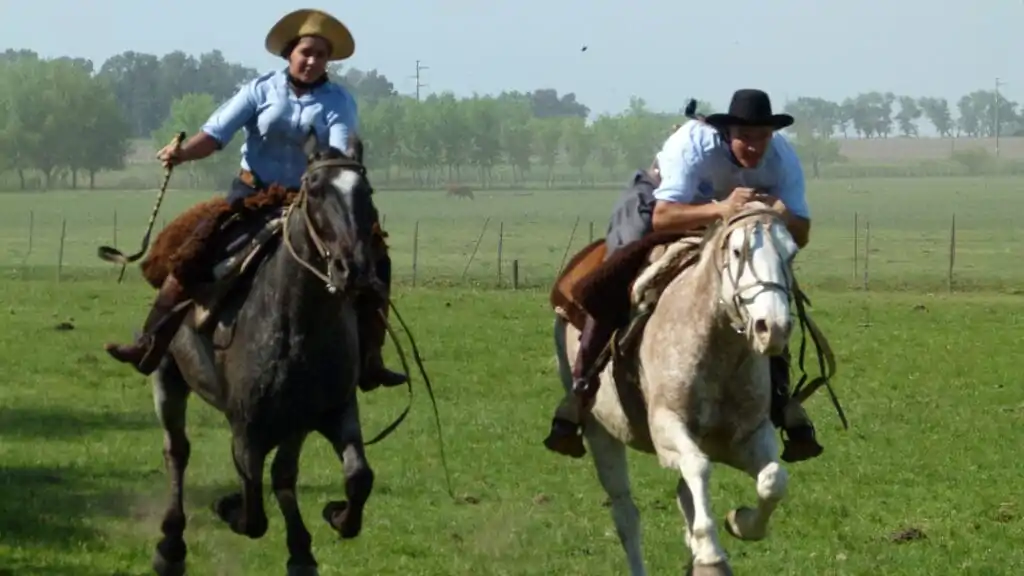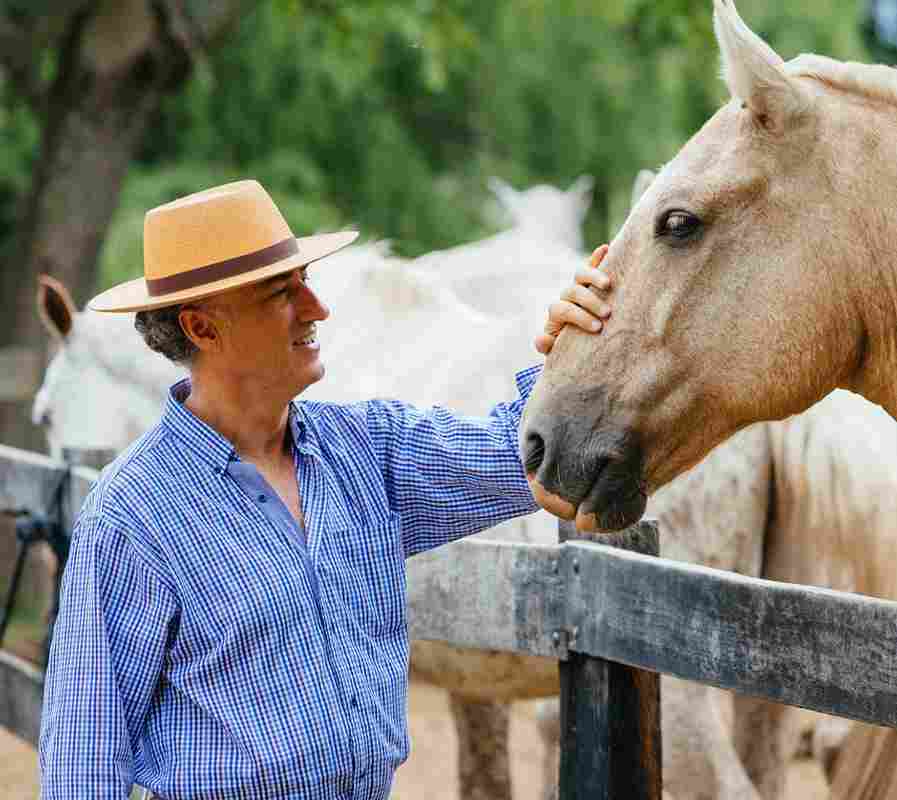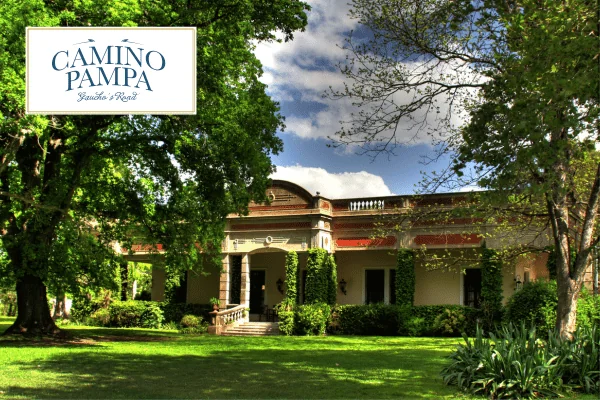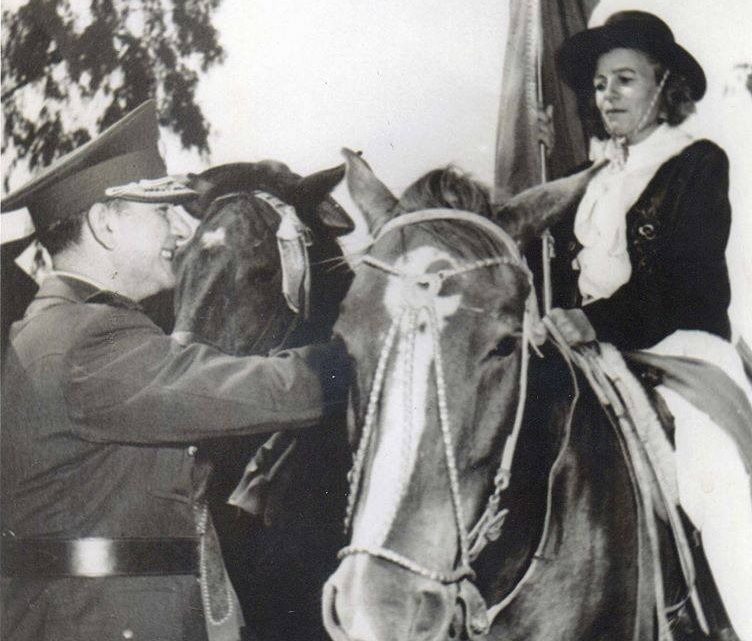Introduction: Mastering Gaucho Skills on Horseback


Gaucho Skills on Horseback
For centuries, the Gaucho, Argentina’s iconic cowboy, has been celebrated for his unmatched skills on horseback. Whether herding cattle across the vast pampas or showcasing their prowess in traditional equestrian games, the gaucho’s bond with his horse is both legendary and functional. Today, these time-honored skills are not just a part of history but an integral part of modern Argentine culture, offering travelers the opportunity to experience horseback mastery first-hand.
At Camino Pampa, we bring this tradition to life through authentic field tours. Foreign visitors, curious about the true spirit of the pampas, are invited to learn the art of riding like a gaucho. As we guide guests through this immersive experience, they don’t just ride a horse; they connect with a lifestyle where the horse is an extension of the gaucho’s body and soul.
The History of the Gaucho and Their Bond with Horses
The deep connection between the gaucho and his horse has roots stretching back to the 18th century. In those days, gauchos roamed the Argentine plains, mastering the wild lands with their unique riding skills. Horses became a key tool for their daily lives, from cattle herding to long, solitary journeys across the open fields.
Historically, the gaucho was both a skilled horseman and a symbol of freedom. He needed to command his horse with precision, often relying on the animal for survival. The natural harmony between horse and rider has been passed down through generations and can still be seen in Argentina today, particularly during traditional festivities and rodeos.
At Camino Pampa, we honor this legacy by incorporating traditional gaucho horseback techniques into our tours. Each visitor experiences first-hand how these skills, such as managing the reins with subtle movements or guiding the horse with leg pressure, remain relevant and impressive in today’s world.
Traditional Gaucho Horseback Riding Techniques
Mastering gaucho skills on horseback requires a deep understanding of equine behavior and control. Unlike typical Western riding, gauchos rely on more refined, minimalist techniques. The use of reins, posture, and leg signals are the primary methods of control, allowing the rider to subtly guide the horse without force.
One of the key techniques we teach at Camino Pampa is how to work in sync with the horse’s movements. By adopting a more relaxed posture and learning to shift weight naturally, riders develop a seamless flow with the horse. The use of the “boleadoras” (throwing weapons used for hunting or cattle control) is also a historic skill, adding a layer of cultural depth to the riding experience.
Through our tours, visitors don’t just ride—they learn to appreciate the elegance of gaucho-style horseback riding. Our guests often mention that this approach feels more intuitive and connected to nature, giving them an authentic sense of what it means to ride like a true Argentine cowboy.
Gaucho Sports and Games: Pato and Ring Races
Beyond daily ranch work, gauchos are also known for their competitive spirit, particularly in horseback sports. The most famous of these is Pato, a traditional game that combines elements of polo and basketball. Riders must work together to carry a ball with handles to the opposing team’s goal while avoiding aggressive tackles. This game highlights the extreme coordination and agility needed to maneuver a horse at high speeds.
Another exciting test of skill is the ring race, or “carrera de sortija”. In this game, gauchos gallop at full speed and attempt to catch a small ring using a long stick, a challenge that demands precision and balance.
At Camino Pampa, we often demonstrate these traditional sports, offering visitors a chance to witness and, in some cases, participate in these gaucho equestrian games. These activities are not just about competition but also about celebrating the historical connection between gauchos and their horses.
Authentic Experience: Gaucho Horseback Tours at Camino Pampa
At Camino Pampa, we have perfected the art of delivering an authentic gaucho horseback experience. Our tours are designed to immerse visitors in the natural beauty of the Argentine countryside while teaching them the skills that gauchos have relied on for centuries. From learning to saddle a horse in the traditional way to practicing essential riding techniques, our guests engage with the rich heritage of the pampas.
Each tour is a blend of education and adventure. Our guides, many of whom come from gaucho families, share personal stories and insights into the gaucho way of life. We provide hands-on lessons in horseback riding, allowing guests to experience the techniques that make the gaucho a master of his craft.
Our goal is to offer more than just a tour—we aim to connect our visitors with a living tradition. Whether you’re a seasoned rider or a beginner, you’ll leave with a deeper appreciation for the skills and culture of the Argentine gaucho.
The Gaucho Culture in Modern Life
While the gaucho’s lifestyle has evolved, horseback riding remains a key element of rural Argentine life. Even in the modern world, gauchos are celebrated figures during festivals and cultural events, where they showcase their skills in rodeos and parades. This enduring tradition plays a significant role in preserving Argentina’s cultural identity.
Today, many gauchos are still working on ranches across the country, maintaining the values of independence, resilience, and skill passed down through generations. These traditions are also kept alive through experiences like the ones offered at Camino Pampa, where foreigners can witness and partake in living gaucho culture.
Share in socials
WANT TO KNOW THE 'GAUCHO ARGENTINO'? BOOK A TOUR!
You may also be interested in:

Why This Gaucho Experience Stands Out from Other Estancia Tours in Buenos Aires
Some people have been asking us about our higher price compared to other Gaucho/Estancia Tours in Buenos Aires.You’ve probably traveled…
Ana Beker: The Horsewoman Who United the Americas on Horseback
More than 70 years ago, when GPS and social media didn’t exist, an Argentine woman embarked on a journey that…
Estancia Vigil: A Testament to Argentine Winemaking Excellence
How did Alejandro Vigil's journey in winemaking begin? Alejandro Vigil's passion for viticulture ignited during his formative years in Mendoza,…



